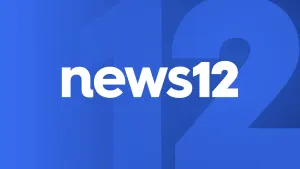(AP) -- Dubbing it a "no-brainer," President Barack Obama expanded a program Monday capping monthly student loan payments for 5 million more borrowers at an unknown cost to taxpayers. Obama also threw his support behind legislation that Democrats are using to paint Republicans as blocking relief for Americans inundated by student debt.
With a group of student loan borrowers looking on, Obama put his pen to a presidential memorandum that will allow those who borrowed through the federal government before 2007 to pay no more than 10 percent of their income in monthly payments. Existing programs created by Congress and Obama already offer that benefit to recent borrowers; Obama's memo will make it fully retroactive.
"I'm only here because this country gave me a chance through education," Obama said. "We are here today because we believe that in America, no hard-working young person should be priced out of a higher education."
In Obama's 2015 budget request, the White House projected expanding the program would cost $7.6 billion in its first year, although the costs decrease in the out years. But Education Secretary Arne Duncan told reporters Monday that the government hasn't gotten that far.
"We actually don't know the costs yet," Duncan said. "We'll figure that out on the back end."
Republican leaders faulted the president for failing to think through the costs of the program, and noted it only affects education financing - not the underlying problem.
"Today's much-hyped loophole closure does nothing to reduce the cost of pursuing a higher education, or improve access to federal student loans," said House Speaker John Boehner, R-Ohio.
Obama, joined by Democratic lawmakers at the White House, also formally endorsed a Senate bill that takes aim at the same problem but could have a more profound effect by allowing by allowing borrowers to refinance their student debt at lower rates currently being offered.
The Senate plans to take up the bill this week, but it faces steep opposition among Republicans because it pays for the lower rates by phasing in a new minimum tax on millionaires. Even so, the bill reinforces a broader economic push by Democrats to portray themselves as the sole advocates for the middle class as the midterm elections draw closer.
Sen. Elizabeth Warren, D-Mass., who is championing the bill, said Democrats are "completely flexible" and open to GOP alternatives for how to pay for the bill. She said so far, Republicans haven't offered any.
"This particular pay-for really puts the question squarely: Who does the U.S. government support? It is billionaires who have already made it, or students who are working hard to get their far shot?" Warren said in an interview.
New borrowers can already cap their monthly payments at 15 percent of income, and that level is set to drop to 10 percent next month. But that plan, created by Congress, doesn't help those still digging themselves out of student debt they accrued years ago.
Using another area of existing law, Obama created his "Pay as You Earn" plan in 2011 to offer similar benefits to those who borrowed since 2007. Monday's action eliminates all eligibility limitations based on when a person borrowed.
Obama also announced he is directing the government to renegotiate contracts with federal student loan servicers to encourage them to make it easier for borrowers to avoid defaulting on their loans. And he asked Treasury and Education departments to work with major tax preparers, including H&R Block and the makers of TurboTax, to increase awareness about tuition tax credits and flexible repayment options available to borrowers.
The dual strategy - taking modest action on his own while urging Congress to finish the job - has become Obama's signature move this year as he works to stay relevant despite the increasing focus on the midterms and his successor.
Outstanding federal student loan debt in the U.S. has topped $1 trillion, the Congressional Budget Office estimates, leading economists to warn that student debt can drag on the economy by preventing many young people from buying their first home or starting a family. A Pew Research Center study last month found that households headed by an adult under 40 that took out student loans have an average of $137,010 in overall debt when credit cards and other debts are factored in.
Departing momentarily from his prepared remarks, Obama adopted a sharply partisan tone in the East Room as he questioned why more Americans weren't outraged at Republicans for siding with the wealthy - an argument Democrats are deploying in their campaigns as they tout proposals on the minimum wage, pay equity and unemployment insurance.
"If you're a big oil company, they'll go to bat for you. If you're a student, good luck," Obama said.
More from News 12
1:53

STORM WATCH: Tracking post-Christmas snow in Brooklyn
1:55

Looming nurse’s strike would impact 5 Brooklyn hospitals
1:27

Unhappy customer fires gun inside Crown Heights restaurant
1:26

Snowball fight led to assault of 10-year-old boy in Kensington, witnesses say

4 injured, 1 critically, in Flatbush fire
1:47
